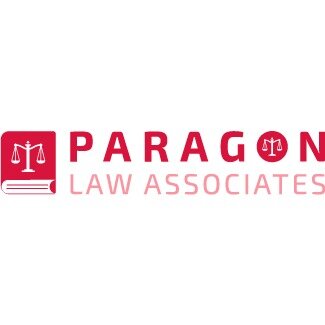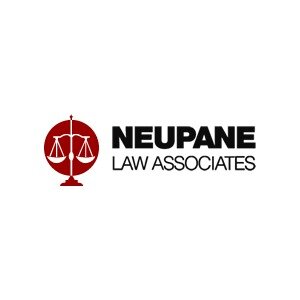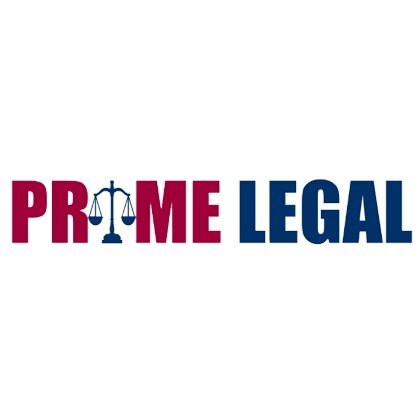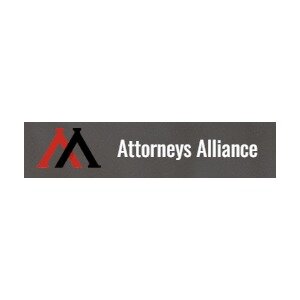Best Renewable & Alternative Energy Lawyers in Kathmandu
Share your needs with us, get contacted by law firms.
Free. Takes 2 min.
List of the best lawyers in Kathmandu, Nepal
About Renewable & Alternative Energy Law in Kathmandu, Nepal
Kathmandu is the capital and economic hub of Nepal, a country blessed with abundant natural resources. As the nation seeks to reduce its dependence on imported fossil fuels and tackle air pollution, the legal framework around renewable and alternative energy is rapidly evolving. This area of law involves government policies, private investments, environmental considerations, and technical regulations regarding solar, wind, hydropower, biomass, and other alternative energy sources. Kathmandu has become a focal point for these developments, attracting both local and international stakeholders interested in clean energy initiatives.
Why You May Need a Lawyer
Navigating the renewable and alternative energy sector in Kathmandu can be complex. People and businesses often require legal assistance for various reasons, including:
- Securing permits and licenses for energy projects
- Understanding compliance requirements with environmental laws
- Drafting and negotiating energy supply or investment contracts
- Resolving land acquisition and property disputes for project sites
- Accessing incentives, subsidies, or tax benefits provided by the government
- Protecting intellectual property for innovative energy technologies
- Handling joint ventures or cross-border partnerships
- Responding to regulatory investigations or defending legal challenges
Whether you are an individual planning to install solar panels on your property or a company investing in a large-scale hydropower plant, consulting a renewable energy lawyer can help you avoid legal traps and ensure compliance with all applicable laws.
Local Laws Overview
Kathmandu falls under Nepalese national laws, with the local municipality enforcing certain regulations. Key aspects relevant to renewable and alternative energy include:
- Electricity Act, 1992: The primary law governing electricity generation, transmission, and distribution. It outlines licensing processes, grid connection rules, and incentives for renewable energy.
- Renewable Energy Subsidy Policy: This policy provides government support for solar, wind, and other non-traditional energy sources, offering subsidies and grants to encourage adoption.
- Hydropower Development Policy: Governs the development of small and large-scale hydropower projects, including requirements for environmental impact assessments (EIA).
- Environment Protection Act, 2019: Mandates EIA or Initial Environmental Examination (IEE) for energy projects based on their scale.
- Local Government Act, 2017: Gives municipalities authority over certain local energy projects and land use decisions.
- Alternative Energy Promotion Centre (AEPC): A government body responsible for promoting alternative energy projects and overseeing subsidy programs.
Nepal’s laws continue to be updated as the country increases its commitment to clean energy. Staying informed and understanding compliance requirements is essential for successful project development in Kathmandu.
Frequently Asked Questions
What types of renewable and alternative energy are most common in Kathmandu?
Kathmandu sees a variety of renewable energy sources, with solar power being the most popular for both homes and businesses. Small hydropower, biogas, and wind energy projects are also present, encouraged by government incentives and growing environmental awareness.
Do I need a permit to install solar panels on my rooftop?
Yes, most solar installations require approval from the local municipality and utility provider. Permitting helps ensure safety standards and compliance with energy regulations. Subsidy applicants must also register their systems with the Alternative Energy Promotion Centre.
What incentives are available for renewable energy projects?
The Nepalese government offers several incentives, including capital subsidies for solar, biogas, and other renewable systems, as well as low-interest loans to promote wider adoption. There may also be tax reductions or duty exemptions for equipment and materials.
What legal steps are involved in starting a hydropower project?
Key steps include securing land rights, conducting an environmental assessment, obtaining a generation license from the Department of Electricity Development, and negotiating grid connection and power purchase agreements. A lawyer can help navigate the complex licensing procedures and contract negotiations.
Are there environmental regulations for renewable energy projects?
Yes, all energy projects in Nepal must comply with the Environment Protection Act. This often requires conducting an environmental impact assessment or a lighter initial examination, depending on the size and type of project.
Can foreign investors participate in Kathmandu’s renewable energy sector?
Yes, foreign investment is encouraged, especially in large-scale projects. However, investors must follow specific rules around company registration, foreign capital inflows, and may need to partner with local entities. Legal guidance is recommended to ensure a smooth process.
How can I resolve a dispute over land for a renewable energy project?
Land disputes can arise between developers, local residents, or government bodies. A lawyer can assist in negotiations, mediation, or litigation, depending on the nature of the disagreement and applicable laws.
What role does the Alternative Energy Promotion Centre (AEPC) play?
The AEPC is a key government agency promoting renewable energy in Nepal. It manages subsidy programs, certifies installers, registers projects, and provides technical guidance to both individuals and organizations.
Do I need to register my renewable energy system with any authority?
For most government incentives and technical approvals, you must register your system with the AEPC and provide documentation proving installation and compliance with standards.
What should I look for when hiring a renewable energy lawyer in Kathmandu?
Look for a lawyer experienced in energy projects with a strong understanding of Nepalese licensing, environmental compliance, contract law, and government processes. References from previous clients in similar projects are also helpful.
Additional Resources
Several organizations and government bodies provide information and support for renewable and alternative energy initiatives in Kathmandu:
- Alternative Energy Promotion Centre (AEPC): For subsidies, project registration, and technical guidelines
- Department of Electricity Development (DoED): For licensing and hydropower project approvals
- Ministry of Energy, Water Resources and Irrigation: For policy updates and national strategies
- Renewable Energy Confederation of Nepal: Industry association offering networking and advocacy
- Local Government Offices: For land, construction, and local permits
- Environmental NGOs: For support on sustainable development, environmental compliance, and community engagement
Next Steps
If you or your organization need legal assistance in the renewable and alternative energy sector in Kathmandu, consider the following actions:
- Identify the specific legal issue or project you are working on
- Collect all relevant documents, permits, contracts, and correspondence
- Consult with a lawyer who has experience in renewable energy law in Nepal
- Prepare a list of questions and concerns to discuss during your consultation
- Verify the lawyer’s credentials and experience with similar matters
- Stay informed about new regulatory developments or incentive programs
- Consider reaching out to industry associations or government bodies for initial guidance
Early legal advice can help you avoid common pitfalls, speed up project approvals, and ensure that your investment in renewable or alternative energy in Kathmandu is successful and sustainable.
Lawzana helps you find the best lawyers and law firms in Kathmandu through a curated and pre-screened list of qualified legal professionals. Our platform offers rankings and detailed profiles of attorneys and law firms, allowing you to compare based on practice areas, including Renewable & Alternative Energy, experience, and client feedback.
Each profile includes a description of the firm's areas of practice, client reviews, team members and partners, year of establishment, spoken languages, office locations, contact information, social media presence, and any published articles or resources. Most firms on our platform speak English and are experienced in both local and international legal matters.
Get a quote from top-rated law firms in Kathmandu, Nepal — quickly, securely, and without unnecessary hassle.
Disclaimer:
The information provided on this page is for general informational purposes only and does not constitute legal advice. While we strive to ensure the accuracy and relevance of the content, legal information may change over time, and interpretations of the law can vary. You should always consult with a qualified legal professional for advice specific to your situation.
We disclaim all liability for actions taken or not taken based on the content of this page. If you believe any information is incorrect or outdated, please contact us, and we will review and update it where appropriate.

















